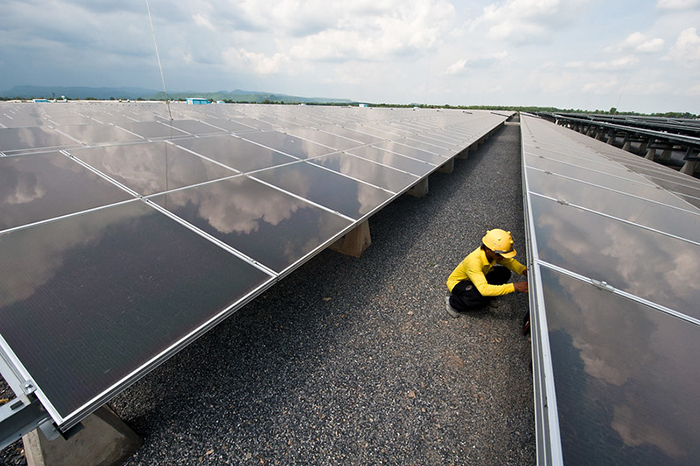ADB Launches Support to Help Countries in Southeast Asia Accelerate Transition to Clean Energy

The 73-megawatt Lopburi Solar Farm is the largest solar photovoltaic project in the world. It is integral to Thailand's efforts to generate energy from renewable sources. Photo by ADB.
The Energy Division of the Asian Development Bank’s Southeast Asia Department launched the Accelerating the Clean Energy Transition in Southeast Asia knowledge and support technical assistance to support the countries of Southeast Asia (SEA) accelerate their transition to cleaner forms of energy.
According to the program’s concept paper, there is a need to accelerate the progress of transitioning to clean energy across the region to remain consistent with the goals of the Paris Agreement. The transition must be just and inclusive, ensuring affordable, reliable, and equitable access to energy services. By strengthening the enabling conditions for this transition, the program hopes to catalyze public and private sector investments in clean energy.
Mr. Pradeep Tharakan, Unit Head for GMS sovereign energy sector operations, underscores that an accelerated transition to cleaner forms of energy in Southeast Asia is predicated on effective planning, enhanced energy sector governance and transparency, the creation of business models involving new market actors, and increased power system integration. Governments need to lead the way, and if they do, domestic and international institutional capital and climate finance will follow.
The program will support the following five pillars:
- Phase-out of coal-fired power generation assets,
- Scale-up of renewable energy generation,
- Improvement of energy efficiency,
- Better energy sector governance and transparency, and
- Enhancement of regional power trade.
The proposed technical assistance will assist countries in Southeast Asia with a comprehensive package of solutions that includes (i) the preparation of sectoral and country-specific assessments; (ii) the development of new business models, feasibility reports, and other technical studies; (iii) the conduct of workshops and policy dialogues; and (iv) the development of project investment pipelines to be financed by ADB and other development partners.
Last Updated: 23 August 2021

